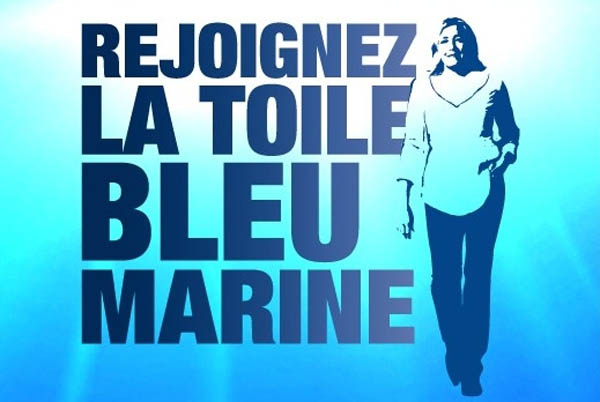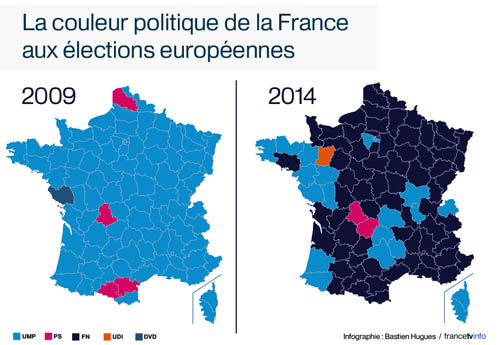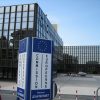
The recent elections to the European Parliament have left even worse sensations for traditional parties than expected. Right-wing anti-EU parties have won in France, Britain and Denmark. Overall, Eurosceptic and Europhobe parties have gained over 20% of the seats in the Parliament and they now have political momentum. The Eurozone crisis, unemployment, immigration and enlargement have been used for discrediting the EU.
Voter turnout in the European elections in France on 25 May was slightly higher than the previous vote five years ago. Official results placed the Front National of Marine Le Pen as the main political force in France for the first time in its history with more than 25% of the vote – quadrupling the score it got in the 2009 elections- while the governing socialists of President François Hollande collapsed to 14%. The Prime Minister Manuel Valls has described the results as “an earthquake”, certainly not without good reason, if we compare them with 2009 elections.

Despite its victory, forming a political group in Strasbourg/Brussels has resulted to be a path with many obstacles and no success in the end. To be constituted, a group is required to be made up by at least 25 Members of the European Parliament (MEPs) who have to come from at least seven different Member States; a threshold which has been impossible to reach for the National Front.
Le Pen’s proposed alliance, called European Alliance for Freedom (EAF), has finally been able to attract only other four populist parties: Netherlands’ PVV, Austria’s FPÖ, Italy’s Lega Nord, and Belgium’s Vlaams Belang. Other parties, such as Lithuania’s Order and Justice Party, have rejected political alliance with Marine Le Pen. The anti-Semitic statements might have made her lose potential allies.
The United Kingdom Independence Party (UKIP), led by Nigel Farage, has been diving in the same political water searching for alliances in its own attempt to constitute an official parliamentary group, but always refused to join forces with Le Pen. Finally, it has won the race managing to form a new Europe of Freedom and Democracy (EFD) group in the European Parliament despite some former partners (such as Danish and Finnish populists or Italian Lega Nord itself) decided to leave the group. How did it happen?
There is one explanation for this, and it has a name: Joëlle Bergeron. The French MEP has allowed Nigel Farage to form his group because she has provided the British leader the seventh nationality needed in the very last minute. She was elected to the European Parliament with Front National last month. In contrast to her former leader, Bergeron does not oppose immigrants to vote in French local elections and she declares herself an Anglophile. Thus, she quit National Front and joined UKIP’s group as an independent: a serious blow to the “bleu Marine” wave.
As a result of this move, the EFD will have 48 EMPs from seven different nationalities: half of them are British. The rest is made up of the Italian Five Star Movement, led by Beppe Grillo and which had 17 MEPs elected, the Swedish Democrats and the Lithuania Order and Justice Party with 2 MEPs each, the representatives of the Czech Free Citizens Party and the Latvian Union of Greens and Farmers’ group, and finally, the Front National defector Joëlle Bergeron.
Farage was faster than Le Pen. And now that the deadline has expired, she has not reached to form her own parliamentary group. “I’m convinced that we can do it later in the year and that we will then have found MEPs from the seven necessary countries”, Dutch Geert Wilders –Le Pen’s closest ally- declared after Monday midnight, the deadline set by the Parliament.
Wilders and Le Pen tried to forge her new alliance until the end, but their options were limited. Last hopes were placed on Janusz Korwin-Mikke, the eccentric 71-year-old leader of the Poland’s Congress of the New Right (KNP) Party. Nevertheless, his proposals include blowing up the European Parliament, restoring monarchy, backing Putin and removing the right to vote from women. For his part, Wilders said he would not form a faction “at any price”, specifically referring to the Poland’s leader.
Without a formal alliance, the Front National and its allies will only have limited influence on EU debates and will not qualify for extra funding − some €2.4 million−. Now, they have the status of “non-attached” members in the parliament.
The elections to the European Parliament allowed Le Pen to become the first political force in France. An important achievement at the polls but, above all, a forceful punishment for French traditional politicians. In spite of the victory, she will have to continue looking for allies. She can start establishing one-off pacts.
What are you going to do now, Marine? Your dream of a broad Europhobe alliance in the EU parliament will have to wait, at least for the moment.


